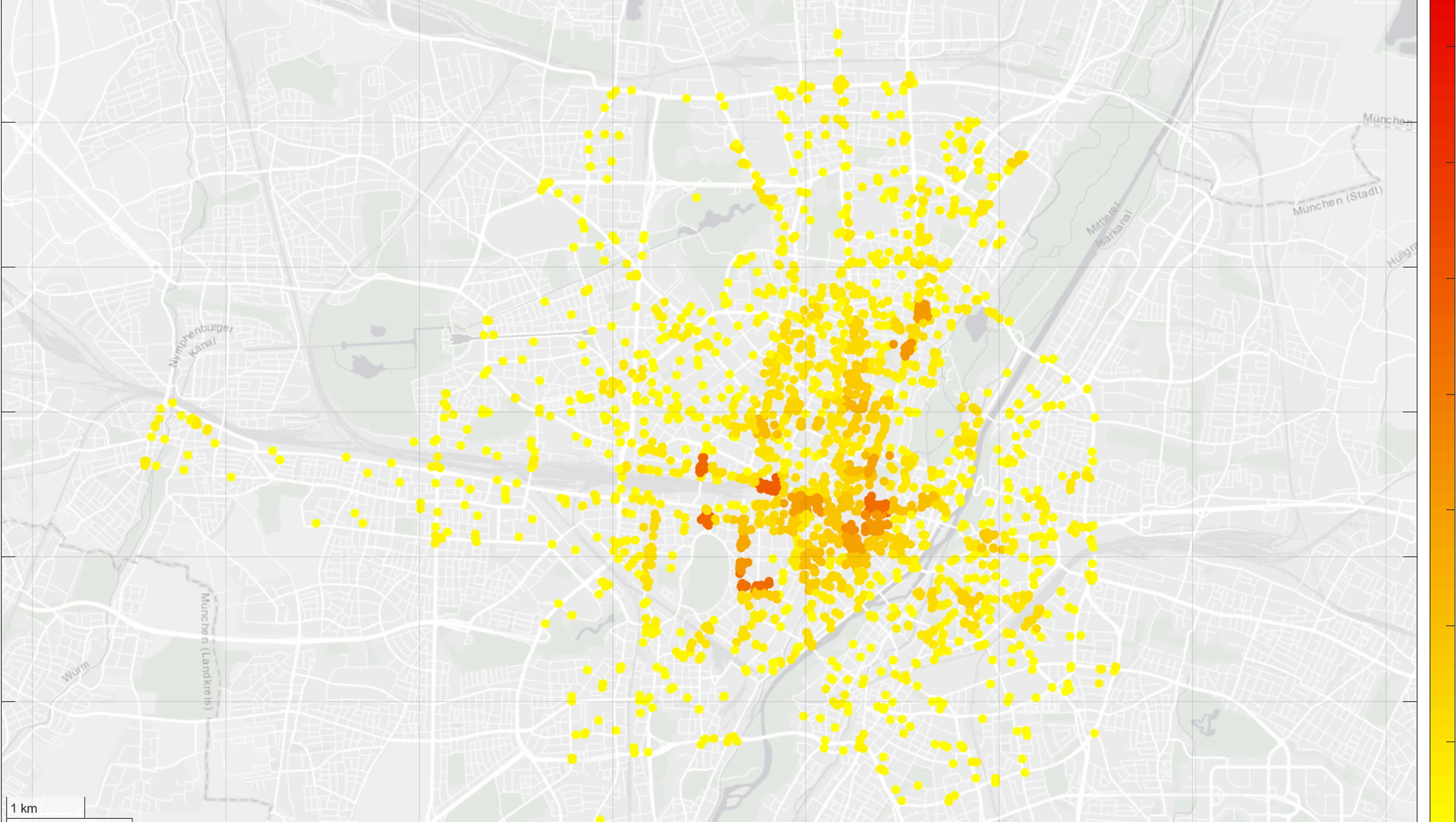
The format "citizen mobility" of the Digital Hub Mobility is a collaboration platform for the mobility of tomorrow. We bring together established companies, municipalities, start-ups and science to identify problems and to develop and test citizen-centred innovative solutions for urban mobility. Another important pillar of the implementation platform is the citizens and their ideas and problems. "Together we will design sustainable mobility for all in a city worth living in" is the mission that unites all participants and forms the basis for cooperation.
Within just under four months, between October 2019 and January 2020, three interdisciplinary teams developed approaches to various challenges of mobility. Active participation of various departments of the City of Munich (LHM) was the basis for a temporary transformation of the city into a "Living Lab".
A currently heated public controversy is the consequences of the introduction of e-kickscooters in large cities around the world by various sharing providers. A citizen mobility team focused its work on analysing the local situation in Munich and developing new solutions through urban experiments.
Experts from Nokia, Stadtwerke München, the Department for Work and Economy of the City of Munich, the start-ups Moonride and Upride, the Universität der Bundeswehr München and fischerAppelt jointly investigated whether and how sharing offers of e-kickscooters can improve the daily mobility of users.
Based on this, they developed impulses for cities, sharing providers and municipal mobility service providers. Qualitative and quantitative surveys, an analysis and visualization of e-scooter location data and experimental testing of parking zones provided extensive insights into the perception, current use and potential of e-kickscooters in Munich.

Figure: First prototype of a parking zone under test
The surveys showed that people in Munich are divided on the subject of e-kickscooters. Especially the issue of parking heated up the minds. According to our survey, in which 230 citizens took part, a majority of more than 60 percent of those questioned stated that they felt disturbed by parked e-scooters on sidewalks. According to the analysis of location data, criticism is being voiced on places where many e-scooters are rented and parked.
Since, on the other hand, the high availability and flexibility are particularly appealing, a solution is needed that prevents the "wild" parking of e-scooters and supports the advantages of the stationless sharing model. For this purpose, the team developed the prototype of a networked parking zone for e-kickscooters together with Upride. It detects with meter accuracy whether a vehicle is parked within a defined area. With satellite positioning - the current standard for sharing scooters - such precise position detection would not be possible, especially in urban canyons. In addition, the digital integration of this parking zone into the app of the start-up Moonride showed the possibility of incentivising the user to park a vehicle within the parking zone. This solution met with great interest, especially from the City of Munich, which wants to create more parking spaces for micro-mobility this year. The administration of Tel Aviv is facing similar challenges and showed great interest.
The development of further prototypes as well as plans for a test run have been taken up by Upride and will continue to be pursued after the meta sprint is completed.
Read more about "citizen mobility": “citizen mobility” – solving the problems of cities
How to make intersections safer: Avoiding accidents at intersections - Team "Safe Intersections"
Team "Cycling to work all year long": Recognizing mobility needs - Team "Cycling to work all year long"
Contact: mobility@unternehmertum.de












